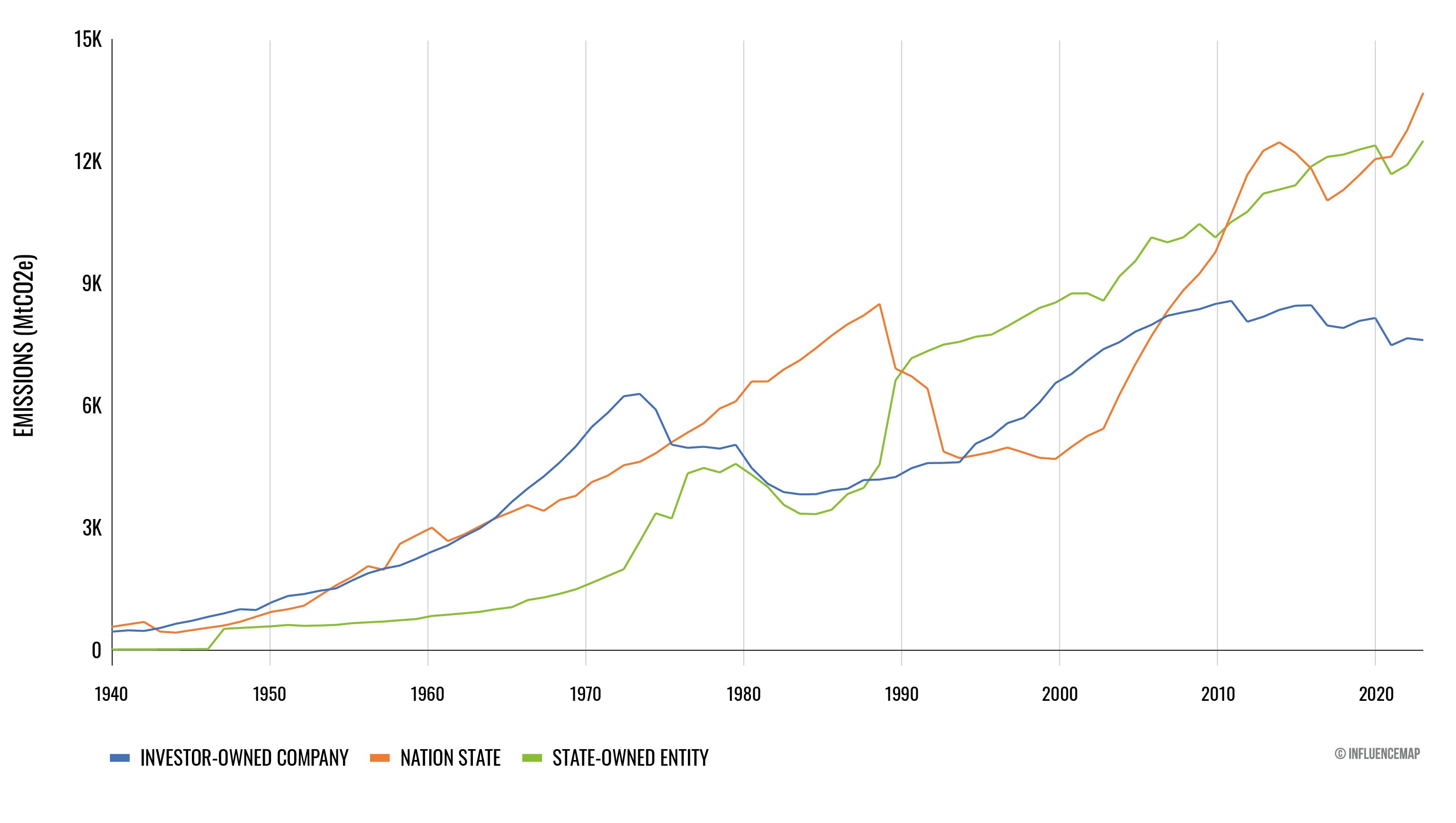Great question! The reason why I was using the 2017 report is that the Guardian arrival you originally referred to was from 2017, so I looked at the report they were working off of. While the article is still misleading (shame Guardian) the notion that a small proportion of companies, both state and private owned (100-200), are responsible for the majority (>50%) of global emissions.
Looking at the updated graph of annual emissions, it seems like this is still true, though I haven’t counted the companies. Again I agree the 72% figure is misleading, but I am pushing back on the alternative implication that relatively few companies are not actually making up the majority of annual emissions.
Great question! The reason why I was using the 2017 report is that the Guardian arrival you originally referred to was from 2017, so I looked at the report they were working off of.
That is sensible, yes.
I regards to the graph you posted, it shows how emissions from private comps is have fallen and emissions from nations and nation owned companies have rissen. I think this is a relevant distinction to make, because the meme and the report as they are show a one sided picture (capitalism is the sole drive of climate change) whilst, looking at the complete data, a more nuanced picture emerges (like the role of nations in upholding the capitals system).
Great question! The reason why I was using the 2017 report is that the Guardian arrival you originally referred to was from 2017, so I looked at the report they were working off of. While the article is still misleading (shame Guardian) the notion that a small proportion of companies, both state and private owned (100-200), are responsible for the majority (>50%) of global emissions.
Looking at the updated graph of annual emissions, it seems like this is still true, though I haven’t counted the companies. Again I agree the 72% figure is misleading, but I am pushing back on the alternative implication that relatively few companies are not actually making up the majority of annual emissions.
That is sensible, yes.
I regards to the graph you posted, it shows how emissions from private comps is have fallen and emissions from nations and nation owned companies have rissen. I think this is a relevant distinction to make, because the meme and the report as they are show a one sided picture (capitalism is the sole drive of climate change) whilst, looking at the complete data, a more nuanced picture emerges (like the role of nations in upholding the capitals system).